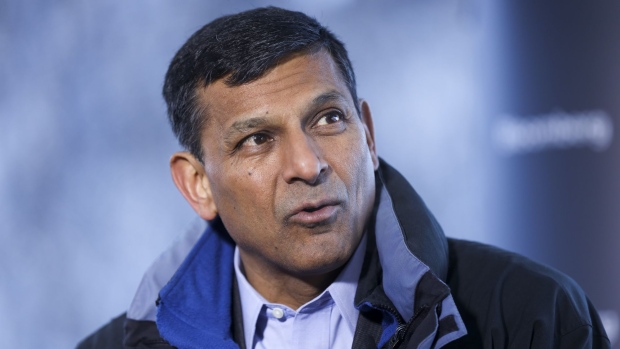Jan 5, 2023
US May See Only Mild Economic Recession, Rajan Says
, Bloomberg News

(Bloomberg) -- The US economy may experience a small economic contraction if the financial sector is able to avoid issues as the Federal Reserve raises rates to stem inflation, said Raghuram Rajan, a former governor of India’s central bank and ex-chief economist at the International Monetary Fund.
“The Fed basically thinks that it rather tighten too much, than tighten too little and then see inflation pick up and have to do it again,” Rajan, who’s now a professor of finance at the University of Chicago Booth School of Business said in an interview with Annmarie Hordern and Joe Mathieu on Bloomberg Television Thursday.
“If we don’t have financial-sector problems. I think it can still be a mild recession, but there is a potential that things build on each other,” such as employers waiting to lay off workers and triggering a sharper downturn. “Whether the Fed can fine-tune things, I think there’s a very real, big question around that.”
The Fed last year raised its benchmark interest rate from almost zero in March to 4.3% by December, the highest level since 2007 to stem an inflation rate that rose to the highest levels in four decades earlier in 2022 and has yet to return to the central bank’s 2% goal.
Central banks globally have been tightening policy to prevent further price growth, cooling economic activity in the process. The IMF in October calculated that about one-third of the world economy will have at least two consecutive quarters of contraction this year and next, and that the lost output through 2026 will be $4 trillion.
By 2025, the world will be “back to the problem of very slow growth” with weakness in emerging markets, low immigration and a slowdown in Chinese expansion relative to its historical rates, Rajan said.
“Where is the new growth going to come from,” Rajan said. “A couple of years down the line, the big problem again is low inflation, or even deflation.”
©2023 Bloomberg L.P.






